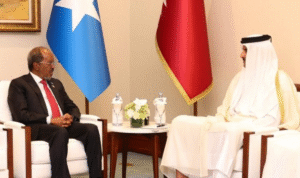As the Boycott, Divestment, and Sanctions (BDS) movement continues to gain significant traction across the Middle East, its impact is becoming increasingly visible not only in prominent political arenas but also in everyday consumer choices. Originating in 2005, the BDS movement aims to increase international economic and political pressure on Israel to address Palestinian rights and comply with international law. Reporting from Somalia, we observe how these efforts resonate across the region, reflecting a broader, grassroots movement that challenges established norms in international relations.
In recent months, several Middle Eastern countries have seen an upsurge in grassroots activities associated with BDS. Activists are energetically advocating for boycotts of Israeli goods and services, while also pushing institutional investors to divest from companies that operate in or have significant ties to Israel. This rising momentum suggests a shift in public sentiment, as more citizens and organizations across the region express solidarity with the Palestinian cause.
Key to the movement’s recent successes has been its ability to leverage social media platforms, harnessing them to disseminate information, unify supporters, and organize large-scale campaigns. These efforts have raised awareness among relatively young and tech-savvy populations, leading to a more engaged and active base of supporters who are rallying behind the cause.
In several instances, this regional movement has influenced diplomatic dialogues. Governments that previously maintained discreet or unofficial commercial ties with Israel are now reassessing these connections in light of growing public scrutiny and pressure. This has led to heightened discussions at both national and international levels regarding the ethical implications of economic engagement with Israel.
Critics, however, argue that the BDS movement’s approach is divisive and could potentially damage economic relations that are crucial for regional stability. Opponents also claim that it unfairly targets Israel while ignoring other geopolitical issues in the region. Despite such criticism, the movement shows no signs of waning, instead gaining credibility and legitimacy through endorsements from various civil rights organizations and academics worldwide.
In Somalia, where local groups have actively participated in advocating for BDS, the movement has become a point of convergence for diverse political and social interests. While Somalia’s direct economic ties with Israel may be limited, the movement has sparked broader conversations about national sovereignty, economic independence, and ethical trade.
As we continue to monitor developments, the BDS movement’s growing influence highlights a new era of citizen-driven diplomacy in the Middle East. While the ultimate outcomes remain to be seen, it is clear that the discourse around Palestinian rights and international accountability is increasingly shaping regional narratives and diplomatic engagements. Reporting for AQRI.net, we will continue to bring you the latest updates on this dynamic situation.







Comment